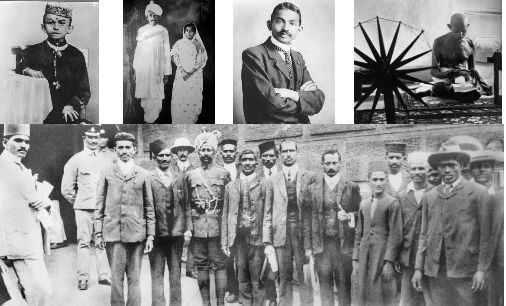573

We celebrate Mahatma Gandhi’s birthday, Gandhi Jayanti, the national holiday on 2nd October. He was a person who gave character and shape to India’s struggle for independence. He not only fought for independence but also played an active role in fighting against social evils, encouraging democracy, etc.
Here we will take a look at some interesting facts about Mahatma Gandhi:
- Mahatma Gandhi was born 2nd October, 1869 in a small state in Gujarat called Porbander.
- His father died before Gandhiji could complete his schooling.
- At the age of thirteen, he was married to Kasturba who was of same age.
- Gandhiji went to London to study law.
- He visited South Africa as a part of his job.
- Gandhiji spent 20 years in South Africa working to fight discrimination as he was mistreated by white rulers.
- He was thrown out of the train in South Africa when traveling to Pretoria, a capital city of Transvaal just because he was an Indian.
- He was again humiliated by horse cart rider where Gandhi was asked to sit on the rider’s feet.
- He went to a hotel where no room was given to him.
- He was treated very badly when caught walking on the footpath near presidents house.
These incidents made him call meeting of Indians in South Africa and pointed out the circumstances of racial discrimination by white people. This situation led to Gandhi being jailed in South Africa.

Rare pictures of Gandhi
- Gandhiji decided to return back to India as he thought that if he stays in South Africa, he will end up becoming just a prosperous barrister. His income at that time was $15,000, which is still a dream for many Indians.
- He returned to India and helped in freedom struggle.
- Mahatma Gandhi played an important role in freedom struggle.
- A powerful weapon he had was ‘Nonviolence’.
- Several peaceful movements were led by him:
- Noncooperation movement: The aim of this movement was to make Indians aware that if done actively, British government can be opposed thereby boycotting foreign goods, educational institutions and seat in government institution.
- Civil disobedience movement: The aim of this movement was to stop British administration by withdrawing support from everything. Thus there was cutting down of military expenditure, abolition of salt tax, etc. Salt Satyagraha was one of the important movements where people protested against the salt tax.
- Quit India movement: This movement aimed at bringing Bruisers to negotiate with Indian leaders. There was an adoption of slogan ‘Do or Die’ for the same.
- He was called as a father of nation as he not only fought for India against British rule but also
- Believed that the true democracy is independence at bottom level. He said every village must be republic and panchayats must be provided with full powers. Villages must be self-sustained and capable of managing its affairs on its own. He believed such a society as highly cultured.
- Was against gender-based recriminations and empowerment of women. He said “There is no occasion for women to consider themselves subordinate or inferior to men.”
- Believed in confiscation of land from large land bank owners and giving it to landless peasants. He said “Land and all properties is his who will work it”.
- Brought major change of the 20th century in the way people fight for their needs and rights in a non-violence way – strikes, boycotts, etc.
- Gandhi fasted for 21-days in 1933 for justice to untouchables.
- Gandhi reorganized Congress with new constitution in 1921 and brought mass national appeal to Indian National Congress, which was then just an elite organization.
- He practiced nonviolence throughout his life. Even when others were violent, he always kept himself calm and peaceful.
- Gandhiji protested against discrimination of members of lower caste.
- He struggled very hard in uniting Hindus and Muslims.
- He was in jail for 6 years and 5 months for our independence.
- He suffered many attempts of assassination. Gandhiji was finally assassinated on January 30, 1948 by Nathuram Godse a Hindu nationalist.
- 2nd October, the birthday of Mahatma Gandhi, is observed as an International Day of Nonviolence.
Was this article helpful?
Yes0Needs improvement0
